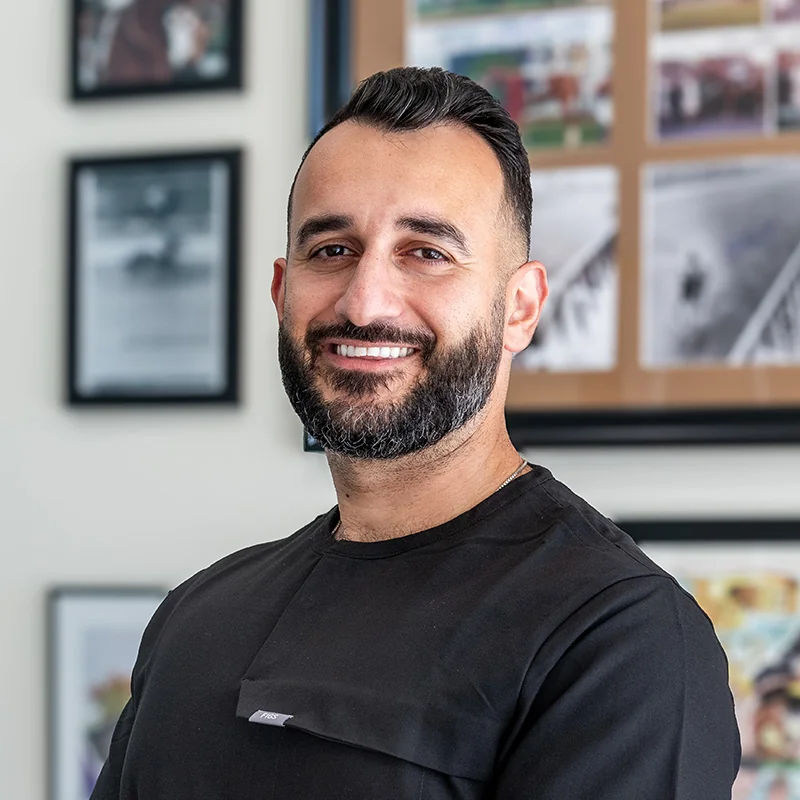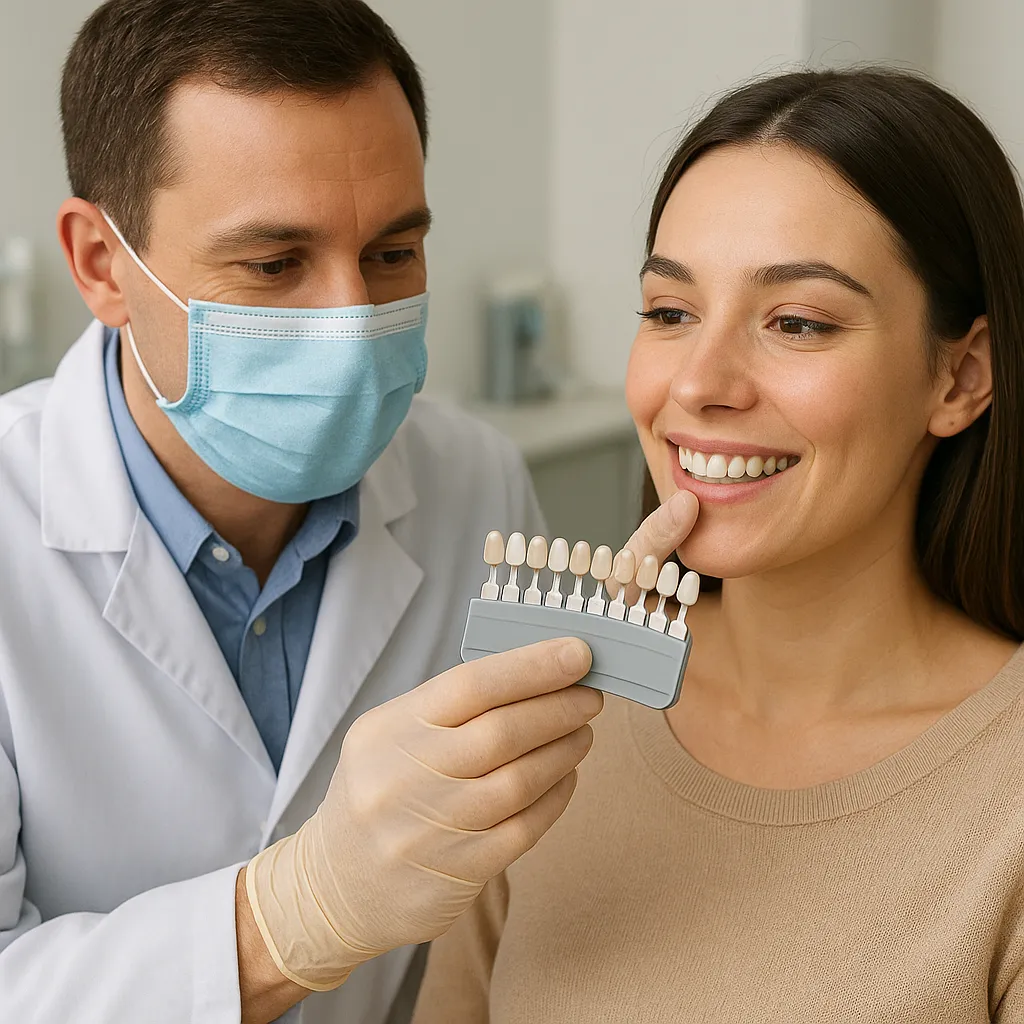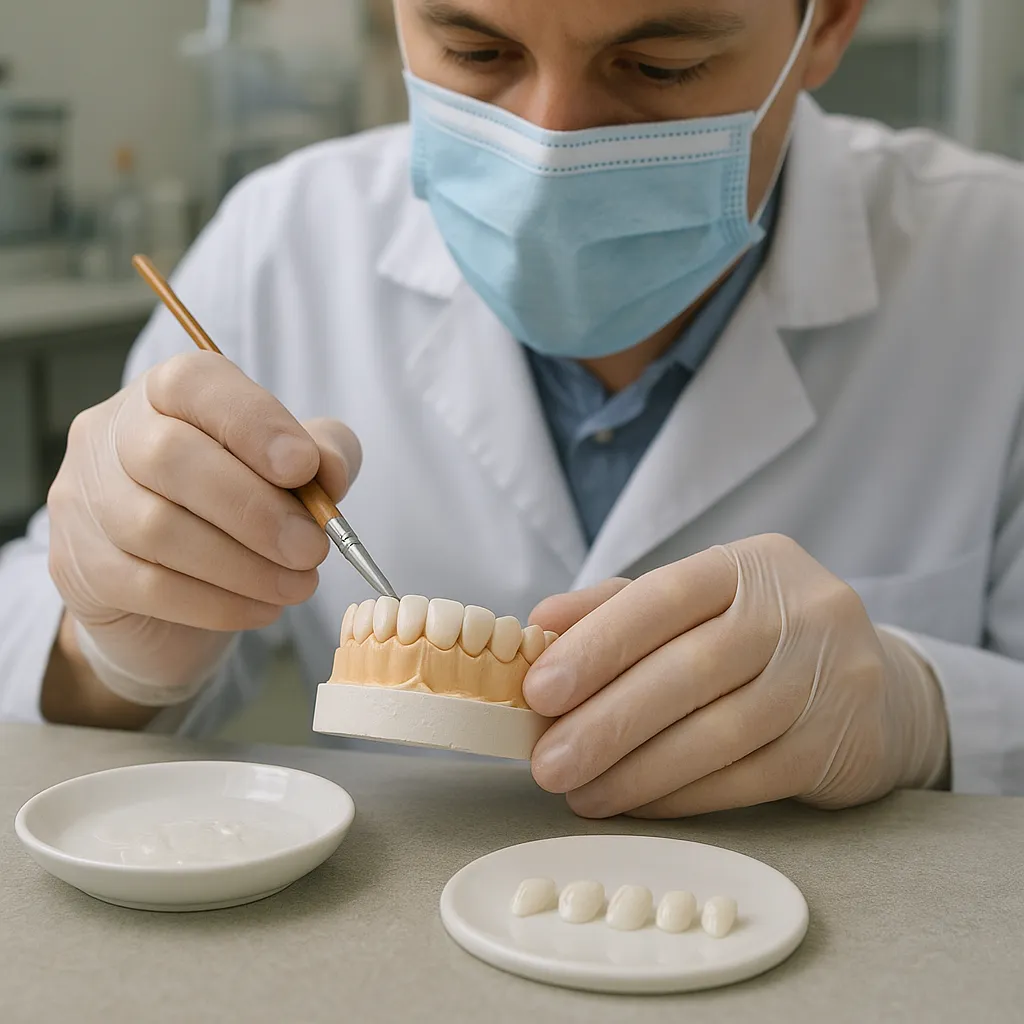
Racetrack Smiles, Tampa FL
Hollywood Smiles Without Hollywood Prices
Now affordable for everyone! Not Resin. Not Temporary. Handcrafted in a world-class dental lab. Receive our 6 Veneer Hollywood smile transformation starting at just $131/Month.
CLICK BELOW TO WATCH FIRST!
MEET THE Doctor
Dr. Paradis Esi
Dr. Esi has helped thousands of patients in Tampa, FL achieve their perfect smile with the highest quality veneers hand crafted by a world-class dental lab.
Hand Crafted Porcelain Veneers
No Cheap Resin Temporaries
Quality & Built To Last

Offers Remaining: 12 LEFT
*Offer Limited To 30 Patients*
Veneers Help Patients With:
Chipped / cracked teeth
Crooked or Mishaped Teeth
Permanent Stains & Discoloration
Small Gapes Between The Teeth
Aging or Worn Down Teeth
Dramatic Smile Makeovers

Quality Built To Last
The Art Of The Perfect Smile
Our porcelain veneers aren’t just dental restorations—they’re works of art. Each veneer is hand-fabricated by a world-famous dental lab that works with top dentists across the globe.
Natural translucency for a lifelike appearance
Precise color-matching to your unique complexion
Crafted for comfort, fit, and lasting durability
World Class Porcelain Veneers
Why Our Veneers Stand Apart...
World-Renowned Craftsmanship: Our lab is internationally recognized for producing veneers for celebrities, public figures, and patients who demand perfection.
Personalized Design Process: We work closely with you to choose the ideal shade, shape, and style—ensuring your veneers enhance your unique facial features.
Long-Lasting Beauty: With care, porcelain veneers can look flawless for years, resisting stains from coffee, tea, and wine.

STILL NOT SURE?
Frequently Asked Questions
We understand lorem ipsum dolor sit amet, consectetur adipisicing elit.
What are porcelain veneers and what do they fix?
Porcelain veneers are ultra-thin, custom shells that bond to the front of your teeth. Think of them like a durable “contact lens” for your smile. Because porcelain mimics real enamel, veneers reflect light naturally and look like real teeth—not plastic white caps. They’re great for covering deep stains, chips and cracks, worn edges, small gaps, mild crowding or uneven tooth shapes, and teeth that are too short or too narrow. If you’re after a whiter, straighter, more balanced smile without braces, veneers can do a lot in just a couple of visits.
Am I a good candidate for veneers?
Most healthy adults are candidates. Ideal patients have good gum health, no active decay, and enough healthy enamel for bonding. If you grind or clench (bruxism), you can still get veneers—you’ll just need a night guard to protect them. If your teeth are very misaligned or your bite is unstable, your dentist may suggest orthodontics first to get a better, longer-lasting result. If a tooth is heavily damaged or has large fillings, a porcelain crown might be a better choice than a veneer. Bottom line: a quick exam will tell you if veneers, whitening, bonding, or a mix of treatments is the best plan.
What does the process and timeline look like?
It’s fast and predictable.
Consultation & design: Photos, digital scans, and shade selection. Many offices can show a digital “mock-up” or place temporary material so you can preview the shape.
Tooth preparation: Usually minimal—often 0.3–0.7 mm. Local anesthetic keeps you comfortable. Impressions/scans go to a world-class lab for hand-layered porcelain.
Temporaries: You’ll wear custom temps for 1–3 weeks while the lab fabricates your veneers. This lets you test drive the look and feel.
Try-in & bonding: At delivery, the dentist checks color, shape, and bite, then bonds the veneers with light-cured resin. Small adjustments are made for a natural bite.
Most cases take 2–3 visits over 2–4 weeks, depending on how many teeth you’re treating and lab timing.
How long do veneers last, and how do I take care of them?
With good habits, porcelain veneers often last 10–15+ years. Porcelain itself resists stains from coffee, tea, and wine, but the edges where veneer meets tooth still need everyday care. Brush twice daily with a soft brush and non-abrasive toothpaste, floss daily, and keep 6-month cleanings. Avoid chewing ice, biting nails, or tearing packages with your teeth. If you grind at night, wear your night guard. If you play contact sports, use a mouthguard. Expect minor touch-ups over time as gums naturally change. When a veneer eventually needs replacing, the dentist can often remove it and bond a new one in a single visit once the lab work is ready.
Will it hurt? What about sensitivity?
Most patients say the process is surprisingly easy. Local anesthetic makes the prep painless. You may feel mild soreness in the gums or slight temperature sensitivity for a few days, especially while wearing temporaries. Over-the-counter pain relievers are usually enough. If your bite feels “high” or a tooth is sensitive to pressure after delivery, call your dentist—tiny bite adjustments can make a big difference. For anxious patients, options like nitrous oxide or oral sedation may be available; just ask during your consult.